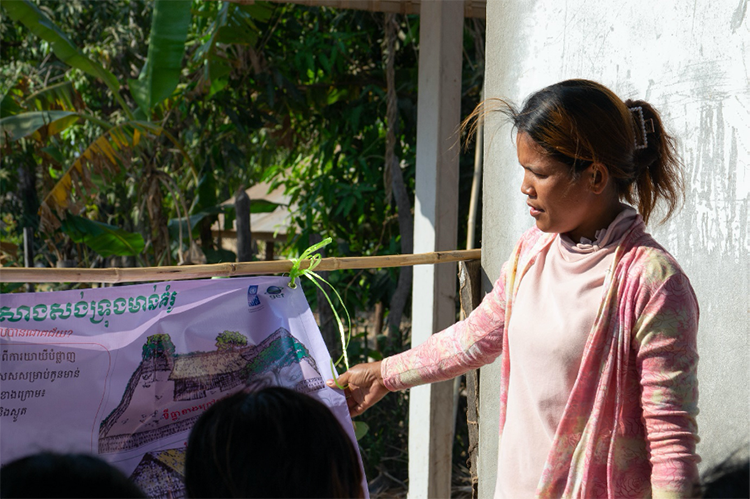November 4, 2020 -- This October marked the end of the United Nations Development Programme (UNDP)-supported ‘Strengthening Climate Information and Early Warning Systems in Cambodia’ project. A number of milestones have been achieved by the GEF-LDCF funded project, including installation of 53 automatic weather and hydrology stations, nationwide implementation of the EWS 1294 system, development of several notable national strategies and policies, and training of over 12,000 Cambodians.
As the project comes to a close, however, it is important to reflect not only on what has been achieved, but also who was and wasn’t included in these results.
To address these issues, a Gender Learning Report has been developed for use both as a reflection and as a guiding piece for the current and future project.
The Gender Learning Report provides a reflection on how well gender considerations were and were not integrated throughout the project. It provides data-supported case studies, a list of lessons learned, and critical questions which can be used to consider gender integration at all stages of project development.
With women making up 51% of Cambodia’s population, it is important to recognise systematic gendered differences in the impacts of disasters and climate change. As the report states:
“Issues that contribute directly to women’s increased vulnerability during disasters include a lack of representation in government, increased vulnerability and lack of protection at safe sites, gendered health concerns, and not being identified and targeted in preparedness and response activities. Furthermore, differences in educational access may contribute to ability to work and obtain and understand knowledge, including access to disaster and climate change information.”
Despite initial challenges and a lack of gender expertise and analysis during project development, gender became a much more prominent focus point following the project’s mid-term review. A partnership with ActionAid Cambodia focusing primarily on enhancing gender equality in the disaster risk reduction space was established, while training by DanChurchAid on Drought Resistant Agricultural Techniques (DRAT) was found to have higher numbers of female attendees at community level than males (a disparity in comparison to the rest of the project’s training numbers).

A female agricultural cooperative leader trains her community on drought resistant agricultural techniques ©Kelsea Clingeleffer/UNDP Cambodia
The report also provided a space for discussion with partners and beneficiaries, which allowed a series of lessons learned to be developed. For example, after discussion with DanChurchAid, it was found that DRAT trainings tended to occur in areas where males migrated during the day for employment, and that training was best attended when schedules and locations accounted for traditional gender roles of females (such as allowing time prior to lunch to go home and prepare food).
The role of qualitative data as a means of exploring gendered experiences during the project was emphasised throughout the report. Rather than focusing solely on quantitative data such as participant numbers, the report aimed to explore the why. For example, it highlighted that while the project was initially aimed at technical advancement for the Ministry of Water Resources and Meteorology at national level – a field dominated by men – there are a few exceptions to this found in the stories of Ms. Tep Phollarath and Ms. Peou Phalla. Similarly, it demonstrated how despite being only a group of 23, the Women Champions trained by ActionAid could have a huge impact on understandings of gender and disaster risk in their communities.
The report acts as a timely reminder that gender considerations must be go beyond simply ticking a box to also look at who was or wasn’t included in project development and implementation, and perhaps most importantly, why – and how we can learn from these experiences for the future.
The report can be found here.
Written by Kelsea Clingeleffer, Results Monitoring, Evaluation and Reporting Consultant
For more information, please contact Muhibuddin Usamah (Project Manager) at muhibuddin.usamah@undp.org
For updates on this project and UNDP Cambodia’s broader work, follow @UNDPCambodia on Facebook, Twitter and LinkedIn
Related articles
“Women changing the world: What happens when you combine disaster risk management and gender equality”, October 2019
'Charter of Demands' voices priorities of Cambodian women’, February 2020
‘Understanding experiences of Cambodian women through the 'Women’s Resilience Index', February 2020

